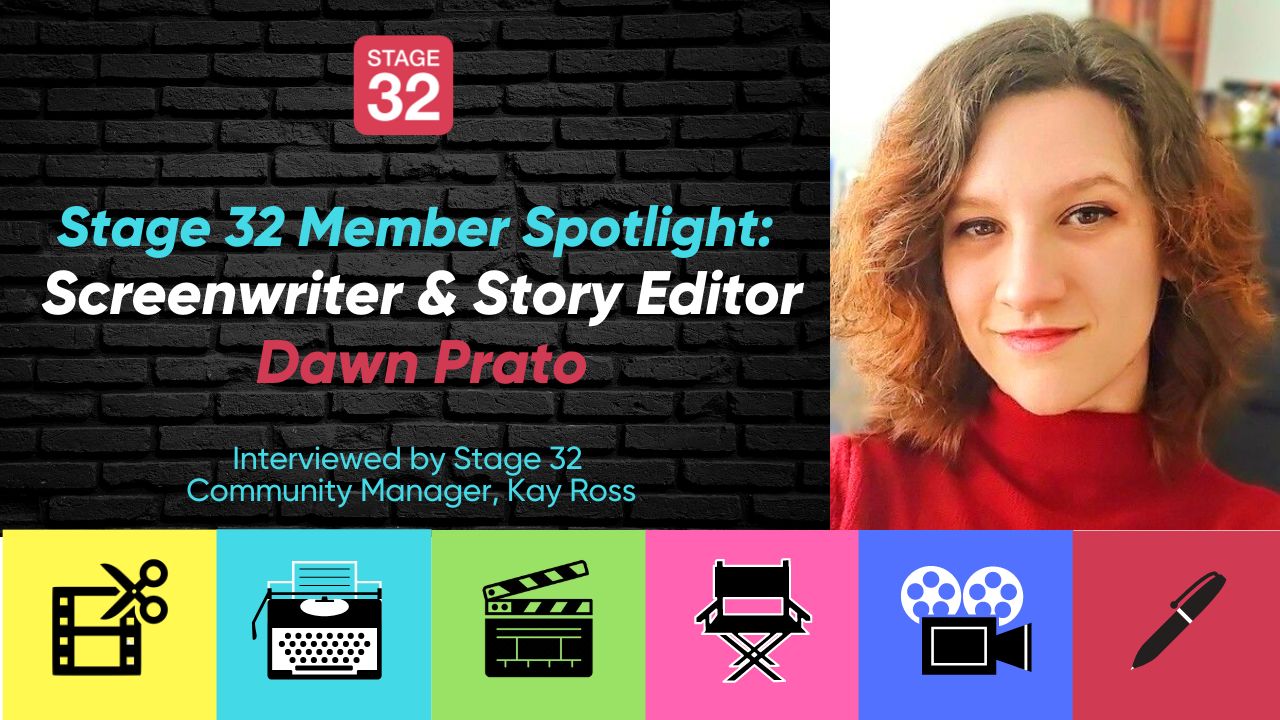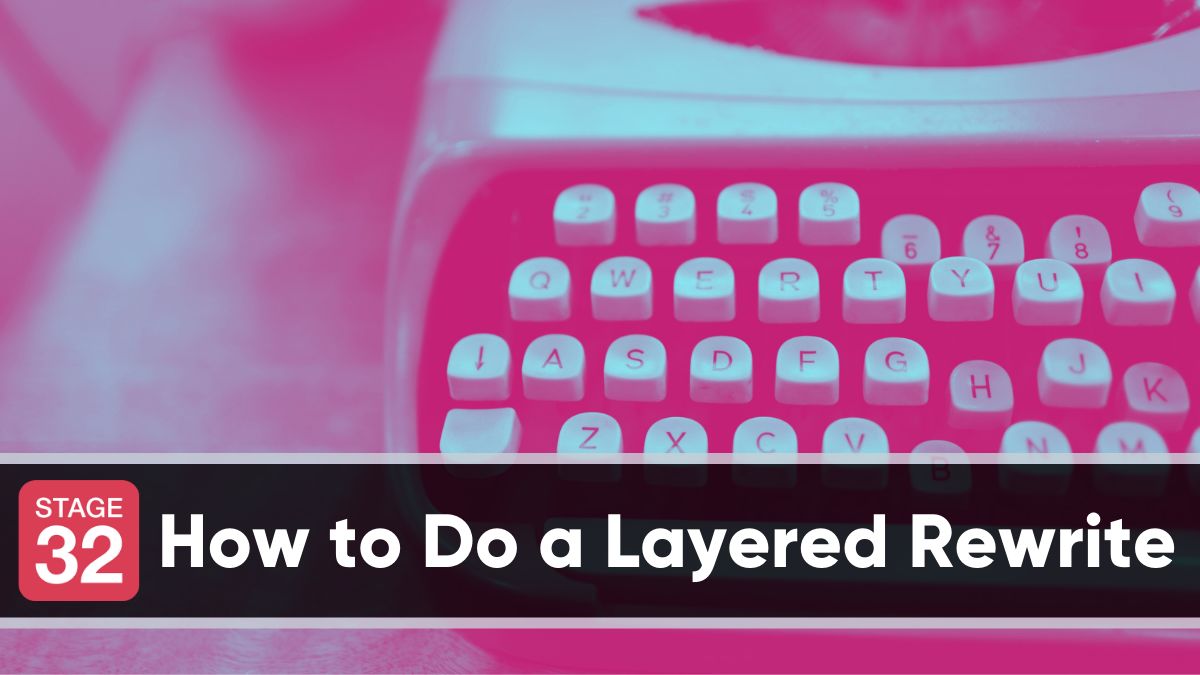A Film Composers Guide to Dealing with Rejections
You often read “how to deal with rejections” for actors and writers, but, when it comes to Composers for Film and Television, it looks like there is less literature, so I thought I’d give it a go myself.
If you are pursuing a career in film scoring, no matter how long ago you started, I am sure you have experienced rejections.
Why is that? Well, the first logical reason is…
There are Many, Many Fish in the Sea
By choosing to be a composer, you’ve chosen a very competitive field. Every time you apply/pitch for a gig, you have to stand out among so many others! You need to be aware that, statistically, there are many chances you won’t get the gig. Ask any composer you might know. They will tell you the number of gigs they don’t get is significant.
Last summer I pitched for a short film and when the director called me she told me she had gotten many and many applications for all the crew positions, but she was overwhelmed by the number of composers who applied. In that case, I got the gig, but it is good to know where we stand when we submit a reel.

What makes you stand out?
It is More About Numbers Than About You
Being one out of hundreds, sometimes even thousands, candidates makes it quite hard to get the gig, so remind this yourself next time a “no” or “no answer” comes. Don’t build your worth as a composer (or, worse, as a person), or your self-esteem, on the number of jobs you get out of the applications you send.
And remember: being successful is not about not getting rejections, but about the way you deal with them.
Knowing the odds will help you manage your expectations, too. I find it is a good exercise for your mental health to submit an application and then forget about it.

Rejections are Part of the Game
Just because of the numbers, you have to accept that rejections are included in the process. Of course, you love what you do, but just like when you love somebody, there are things that are out of your control and you just have to deal with them. In your relationship with film scoring, rejections are that part.
As a freelance composer you know you are taking risks, all the time. It is a stressful, uncertain career path, but the unexpected is also part of the excitement of being your own boss. Isn’t it?
“But I wanted (and needed) that gig so much! What can I do to get over this rejection?”
First of all, I would say, allow yourself to acknowledge the way you feel. Frustration and disappointment are absolutely common feelings in case of rejection, so be aware you feel that way and give yourself a brief “sad time”, take some time to recharge your batteries, to remind yourself what made you choose this career in the first place.
For me, a good idea is also to talk to a colleague who knows me and knows my work and work ethic and that I really trust. It always helps me put the situation into perspective. Anyway, no matter how hard the rejection is hitting you, it is important that you do your best to keep looking at the whole picture, your achievements, your goals, your ability to move forward. Think of rejections as a bump on the road. They can’t stop you - unless you let them.

Be Kind to Yourself
You need this to elaborate on rejections. So take care of yourself and your motivation and inspiration… I would suggest not to waste time or energy to try and understand why you didn’t get that gig. Because you’ll never know. There might be so many reasons, regardless of the strength of your application. I personally think that asking yourself that kind of question could put in motion a spiral of negative thoughts that definitely won’t help you, so you’d rather focus on regrouping, getting back on your feet, and moving on.
Also, try and keep in mind that every extra time spent “crying” over a lost opportunity could make you miss just the next one.
Turn Rejection into Motivation
It might sound a bit fatalistic, but just like other times in your life, try to consider the possibility that you didn’t get that gig because there is something better waiting for you around the corner. In my experience, I always found out that there was a good reason why I didn’t get a certain gig and I never had to look back and think “what if”, because other exciting opportunities always came after rejections.
You have to believe this and to believe in yourself. Turn rejections into fuel for your motivation, to work hard, knowing that something better will come. If you don’t believe you deserve to be successful and you are going to make it, how could possibly other people believe in you?

Me Singing with Orchestra Sinfonica di Asti
Keep Making Plans
As soon as you feel better, start again: make plans, look for gigs, never be scared of putting yourself out there. It is the only way to find more opportunities.
Try and be creative also in the way you look for work. You’ll never know what next opportunity might be and where it might come from. Keep an open mind and keep up the good work and let it build a good reputation around you.
As I wrote in my previous blog The Film Composer/Director Relationship: How to Make it a Match Made in Heaven, referrals by word of mouth are one of the main ways to get more and more work and, not only get some gigs but build a solid career.
Also, as they say, it feels good to have a dream, but it feels GREAT to have a plan.

Dealing with Rejections: the Do's & Don'ts
DO:
1. (Do) Stay Focused and Active
Staying positive and moving on doesn’t mean you consider yourself as the perfect composer. It is good to focus on your strengths but, also, to be aware that there is always room for improvement. Whenever you have some time to spare, work on your weaknesses, and keep educating yourself. There is so much to learn out there and if you do this it will make you feel better when you don’t get a gig, since you are working hard and you are doing the best you can to constantly improve your skills!
2. (Do) Think of Ways to Beat the Odds
As I wrote in my previous blog, running the extra mile will possibly make the difference. Make sure you create a tailored reel and you really get what kind of music the production is looking for. Showing that you can offer what they need, and presenting it in a nice looking, organized package, is a good way to stand out. Since it is basically that you are selling your work, package counts.
3. (Do) Create your Personal “lift me up” Emergency Kit
I have got a folder with this purpose, containing pictures, articles, interviews, thank you messages and positive feedbacks on my work so that, when I am feeling a bit down, I have actual facts all together in the same place to help me remind my achievements and the number of people I made happy with my work, It’s a simple thing I used to do as an educator ( so hard to stay objective when you have to deal with many different students and their unique learning curves) and it works like a charm for film scoring, too!
DON’T:
1. (Don't) Compare Yourself to Others
There are no rules defining the steps in a film composer career, what works for somebody else doesn’t necessarily work for you. Furthermore, don’t forget you are an artist, keep shaping your distinctive musical voice. Your strengths. Don’t try and be someone else. Instead, be your unique, interesting self. It is just a matter of time, but you’ll be found!
2. (Don't) Complain in public
I know that sometimes rejections can hit really hard, especially if you are already feeling tired or a bit down for some reason, but do yourself a favor and keep negative thoughts that might occur to you for yourself. True fact: After a rejection from a scoring competition this year, a composer complained in a public forum. That post wasn’t well received. Stay positive and be smart. You don’t want to build yourself the negative reputation of a “whiner”. It would only be bad for your career.
3. (Don’t) Make Decisions While You are Not Over the Rejection Yet
It will pass, you will recover. Wait for a better time, when you can be more objective.
Thank you for stopping by and reading me and best of luck with your film scoring adventures!
About Elena Maro

Born and raised in Italy, Elena Maro is a Los Angeles based composer for Film, Media, TV and Theatre, songwriter, and singer.A former professional ballet dancer, orchestra lead singer, and studio and TV vocalist, before moving to USA in 2016, Elena worked for many years as a singer songwriter, composer, sound design artist, actress and playwright for theatre productions also with symphonic orchestras and popular Italian singers and actors.As a freelance composer, she has completed several Film, TV and Advertising projects, for clients both from Europe and from USA, while at the same time she has been writing additional music for films on Lifetime, Ion Television, Channel 5 UK, Amazon Prime and other VOD Platforms. She is a Television Academy Voting Member.
She is the recipient of four Global Music Awards, one for the Orchestral Suite #1 from her score for the western film “Miss Happy” and others for her scores for documentaries. Her Christmas Jazz Song “As Long As You Are Near”, recorded at Capitol Studios during Chris Walden Masterclass, was awarded an honorable mention as a finalist at The Great American Song Contest in 2019.Elena is the lyricist for “Today - Say No to Child Labour”, a pop song included in the world campaign against child labour by ILO - UN Agency. The line she wrote ”give the voiceless your voice” is the concept that moved her to make music for media. She says: “I want to make music with meaning for meaningful projects”.Elena keeps on developing her craft and musical voice and her eclecticism covers a wide variety of styles.She loves thinking outside the box and creating every time unique, distinctive scores and songs that will give each project a recognizable sound.Her approach to scoring is, first and foremost, to serve the story with honesty and respect.
Previous Stage 32 Blogs by Elena:
The Director/Composer Relationship: How to Make it a Match Made in Heaven
Let's hear your thoughts in the comments below!
Got an idea for a post? Or have you collaborated with Stage 32 members to create a project? We'd love to hear about it. Email Taylor at taylor@stage32.com and let's get your post published!
Please help support your fellow Stage 32ers by sharing this on social. Check out the social media buttons at the top to share on Instagram @stage32online Twitter @stage32 Facebook @stage32 and LinkedIn @stage-32
| Stage 32 Member Spotlight: Screenwriter/Story Editor Dawn Prato |
| How to Do a Layered Rewrite |
Search Stage 32 Blog
There are now 4036 blog posts for you to enjoy. Search them all by tags below.
Acting, Advice, Cinematography, Coffee & Content, Composing, Contests, Distribution, Featured, Filmmaking, Financing, Inspirational, Networking, Producing, Screenwriting, Success Stories, Tips, Trending,Relevant Tags
Recommended Articles

Don't Let the Momentum of November Write Club Die: How to Stay Active Into 2026 & Beyond!

A Practical Guide for Actors: Tips & Advice Every Performer Should Know

Insider Intel: Packaging your Project- The Chicken or the Egg Dilemma

Coffee & Content: Opening Doors & Taking Control of Your Creative Path

Forbes Spotlights Stage 32 Certification!

Stage 32 Featured at the 43rd Torino Film Festival!

Insider Intel: 2026 Predictions

Coffee & Content: The Genius of Weapons and How to Know When Your Script Is Ready

Insider Intel: The Studio War & The Rise of Indies






